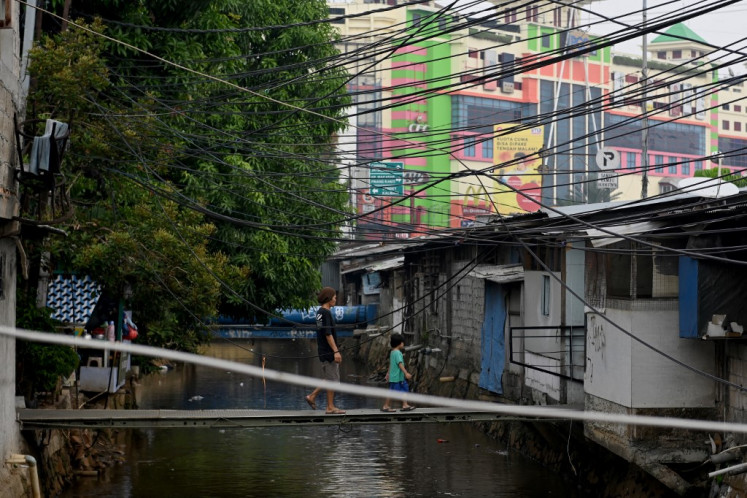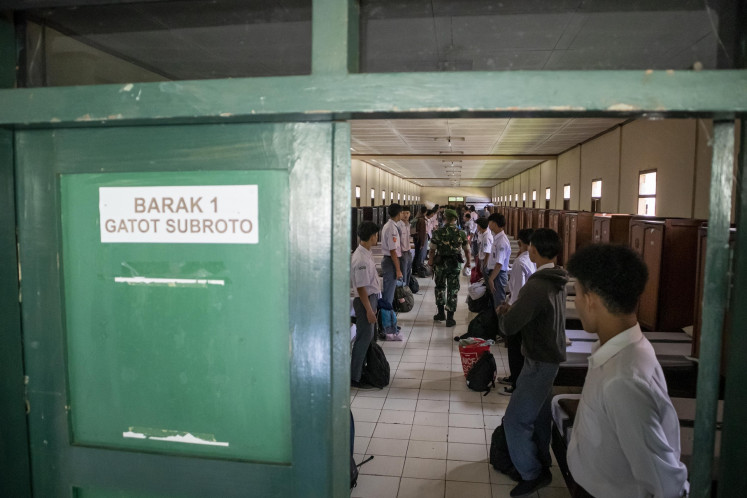Indonesian language the hardest subject for students
The recently announced results of the national examinations for high school and Islamic high school students showed that one of the subjects in which most students failed was Indonesian language
Change text size
Gift Premium Articles
to Anyone

T
he recently announced results of the national examinations for high school and Islamic high school students showed that one of the subjects in which most students failed was Indonesian language.
While some considered the most difficult subject of the six tested to be mathematics or English, National Education Minister Muhammad Nuh announced Monday that most of the students taking remedial tests in May were those who failed to post a passing score in Indonesian language and biology.
On Tuesday, he said the failure rate was even higher among students who chose language as their major.
“It is ironic that 62 percent of language major students are required to take Indonesian language remedial tests [out of the total number of language major students who failed in one subject only],” Nuh said.
Of the more than 1.5 million high school students who sat the exams last month, more than 150,000 have to take remedial tests.
Passing the national examinations is a prerequisite for graduation, along with other components including tests conducted by the schools and behavioral assessments.
Nuh said his ministry would study why students failed in those particular subjects. The analysis would also look at the exam questions.
The result of the analysis would determine future government measures, he said. “If the majority [of the difficulties] lie in prose, we will look at the quality of the teachers the [school] library,” he said.
National Education Standards Agency chairman Djemari Mardapi said the exam content, which consisted of 50 multiple choice problems, resulted in satisfying results in initial trials.
“Last year, we had more students who succeeded in scoring 10 [out of 10],” he said.
Politeknik Negeri Media Kreatif academy literature expert and lecturer Frans Parera said the failure of students in Indonesian language might be a problem rooted in the curriculum and teaching method.
“Language is supposed to be about communication and dialogue, but the approach [used currently] is narrow and too technical,” he said.
Teaching language requires multiple methods, he added, including conversation methods, the methods to recognize references, and methods to hold meetings and share ideas.
“The Indonesian language has a playful side, so the lesson requires grammatical sides as well as language play,” he said.
Writer and literature expert Eka Kurniawan said the interest in Indonesian language, including among the youth, was actually quite high.
“In the last 10 years, there has been an increase in the number of new writers. On the literature website that my friend and I set up, there are many high school students who often contribute short stories,” he said.
However, Eka said, schools did little to boost that interest.
“There’s something wrong with the curriculum. I think the students aren’t being told to read enough [literary] books in school,” he said.
Aulia, a student from a private high school who sat through the national examinations, said that he was rarely told to read novels or other literary works.
“The teacher did tell me to read a grammar book for the university test,” he said. (dis)









